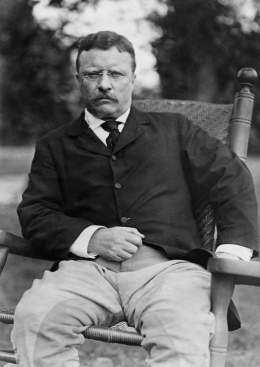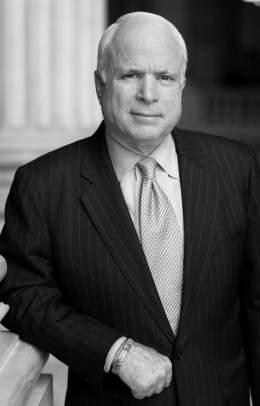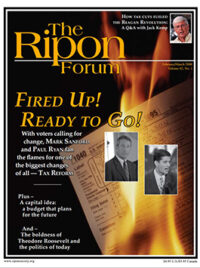 Theodore Roosevelt was one of America’s most courageous, most creative, most effective presidents. He was a progressive Republican who conceived of the president as the “steward” of the American people, future generations included. Roosevelt instituted a far-reaching conservation program, a “Square Deal” for common citizens, and a dramatic reorientation of U.S. foreign policy.
Theodore Roosevelt was one of America’s most courageous, most creative, most effective presidents. He was a progressive Republican who conceived of the president as the “steward” of the American people, future generations included. Roosevelt instituted a far-reaching conservation program, a “Square Deal” for common citizens, and a dramatic reorientation of U.S. foreign policy.
On conservation, he employed two distinct ideas — controlled utilization and preservation — as he expanded the nation’s forest reserves by about 350% to 194 million acres, established a federal irrigation network in the western United States, and created the first 51 federal bird reservations, the first four national game preserves, the first 18 national monuments, and five new national parks.
Roosevelt’s Square Deal emphasized justice for workers and consumers and was manifested in his even-handed mediation of the anthracite coal strike of 1902, his successful attacks on trusts he considered to be harmful to the public interest, and the enactment of such landmark laws as the Pure Food and Drug Act, the Meat Inspection Act, and the Hepburn Bill of 1906, which won for the Interstate Commerce Commission meaningful regulatory authority over the nation’s railroads.
And in foreign policy, Roosevelt built up the U.S. Navy, secured U.S. control of the Panama Canal Zone and started building the canal, forged a potent informal alliance between the United States and Great Britain, functioned as a mediator par excellence during the two gravest international crises of his presidency, and, in general, gained recognition of and respect for the United States as a confident and influential great power.
These extraordinary accomplishments resulted from a deftly executed approach combining persuasion and executive action. Roosevelt was a broad constructionist who often would act unilaterally on behalf of the citizenry when the U.S. Constitution did not expressly forbid him to do so. He also utilized the “bully pulpit” of the presidency to educate and persuade the people and, where legislative action was necessary, members of Congress.
So, for example, TR employed what he viewed as his constitutional prerogatives as chief executive to create bird sanctuaries and game preserves, to resolve the coal strike, and to mediate the negotiations that ended the Russo-Japanese War. He drew on executive power previously granted by Congress to designate forest reserves and national parks and to take down trusts (most notably J. P. Morgan’s Northern Securities Company), and he sought and gained from Congress presidential authority to create national monuments (the Antiquities Act of 1906) and the funding needed to carry out his naval building program (secured in part by the brilliant public relations spectacle of sending the U.S. battleship fleet on a 14 month world cruise beginning in December 1907). Roosevelt’s skills in obtaining major congressional legislation were repeatedly displayed — most impressively, perhaps, when he maneuvered to gain passage of the Hepburn Bill, winning enough Democratic support to offset some determined Republican opposition.
Forty years after TR’s presidency, it appeared, somewhat ironically, that the Democratic Party had become his true heir. More than any other president from 1909 to the present, Harry Truman personified a mixture of domestic progressivism and an ambitious, coherent, firm, effective foreign policy reminiscent of Theodore Roosevelt.
But since the mid-1960s there has been a split: The Republican Party has taken more consistently than the Democrats a Rooseveltian approach to U.S. foreign relations, while the Democratic Party has continued (in the tradition of both Presidents Roosevelt) to put forward policies designed to advance social justice and environmental protection. So where does that leave a Rooseveltian voter in 2008?
It is difficult to project how a present-day Theodore Roosevelt would come down on such issues as abortion rights and gun control (although, as a one-time police commissioner, Roosevelt would probably side with the police in favor of sensible restrictions on access to assault weapons and handguns). But it can be asserted with reasonable assurance that an early 21st century Rooseveltian agenda would encompass the following elements: (1) a forward defense strategy featuring continuing U.S. military predominance and, in particular, a vigorous sustained war against Islamic extremists; (2) a bold environmental program highlighted by serious efforts to address the challenge of global warming and to move toward U.S. energy independence; and (3) a budgetary policy aiming to bring about a just and efficient universal health care system, to fund vital infrastructure projects, to restore substantially higher income and inheritance tax rates on people of great wealth (TR was an outspoken early proponent of such taxes, which he advocated on moral as well as economic grounds), and in the process to reduce sharply the annual federal deficit, which is undermining U.S. security and is inexcusably imposing huge burdens on younger and future generations.
Would Hillary Clinton or Barack Obama be likely to pursue such an agenda? It is conceivable that either of them could, but serious doubts do arise readily in the transcendently important area of national security. In addition, either might have difficulty winning the 60 votes needed in the Senate for transformative domestic legislation. Most in the Republican field of candidates inspire even less optimism. While there would be a greater awareness of the country’s national security requirements, questions of competence and of sufficient monetary resources for optimum military readiness and performance would loom. And the domestic portion of the Rooseveltian agenda delineated above would face dim prospects.

There is one potential Rooseveltian candidate in the 2008 presidential race, and that candidate is a Republican. Senator John McCain has on many occasions enthusiastically proclaimed Theodore Roosevelt as one of his heroes and models. McCain possesses the international sophistication and lucidity, the courage of his convictions, and the maturity and toughness to confront effectively the existential challenge posed to the United States and the entire civilized world by radical Islamic countries and organizations. He grasps the danger to the planet of failing to stem global warming and the danger to America of failing to reduce U.S. dependence on foreign oil. He believes in an ethical society, common sacrifice, corporate accountability, and fiscal responsibility. It is even arguable that McCain would be in a stronger position than Clinton or Obama to achieve major domestic policy breakthroughs, because McCain would be better situated than they to pick up enough Republican support in the Senate to win passage of path-breaking reform legislation. Most important, whatever may turn out to be the specific elements of his presidential policies, McCain embodies the Rooseveltian notion of stewardship and would treat the presidency as a sacred trust to safeguard and serve the American people, coming generations pointedly included.
There is one potential Rooseveltian candidate in the 2008 presidential race, and that candidate is a Republican.
The hope, to this author, at least, is that, beginning in January 2009, the citizens of the United States will have given themselves the opportunity to be led by this extremely decent, public-spirited, bold, resolute, capable, and admirable individual. One can speculate with some confidence that Theodore Roosevelt would wholeheartedly approve.
William N. Tilchin is a history professor at Boston University, the author of Theodore Roosevelt and the British Empire: A Study in Presidential Statecraft (St. Martin’s Press, 1997) and numerous other writings, and the editor of the quarterly Theodore Roosevelt Association Journal. The views expressed here are his own.




